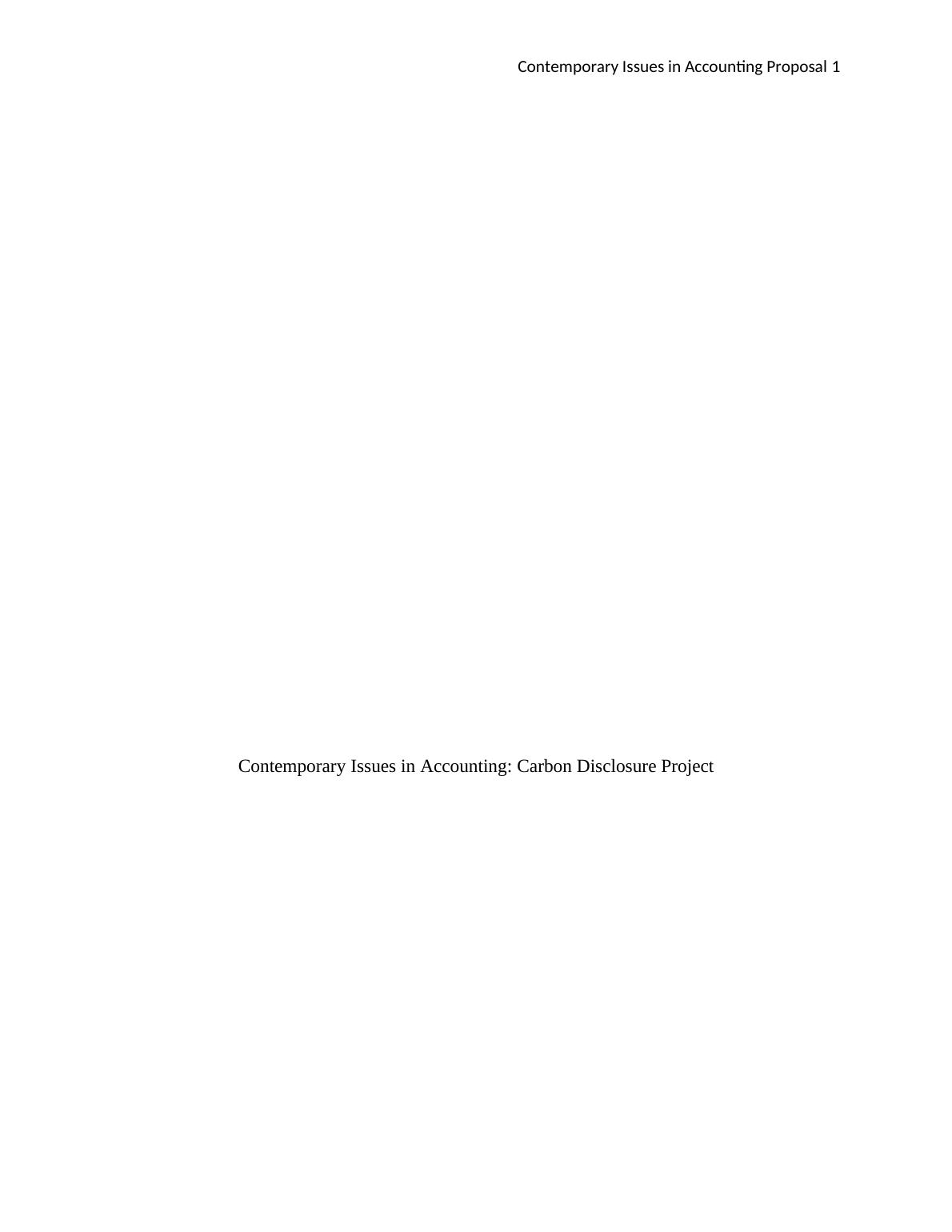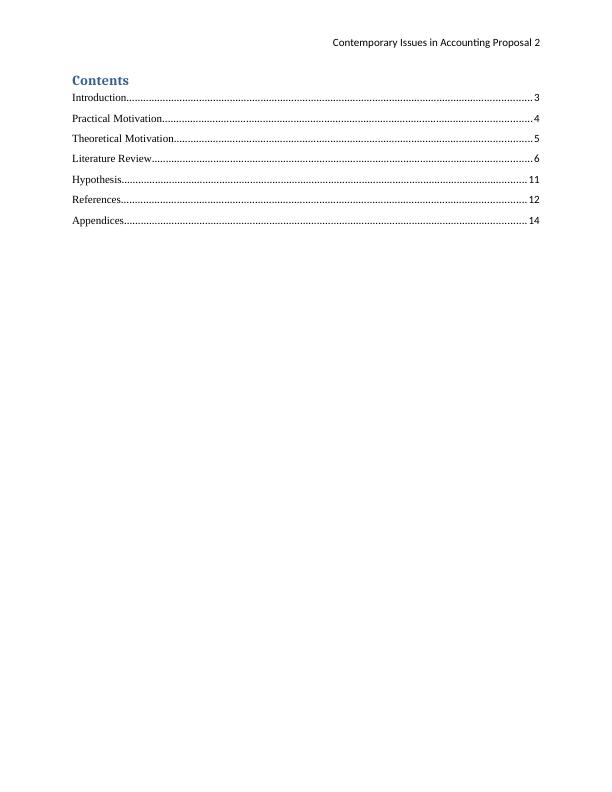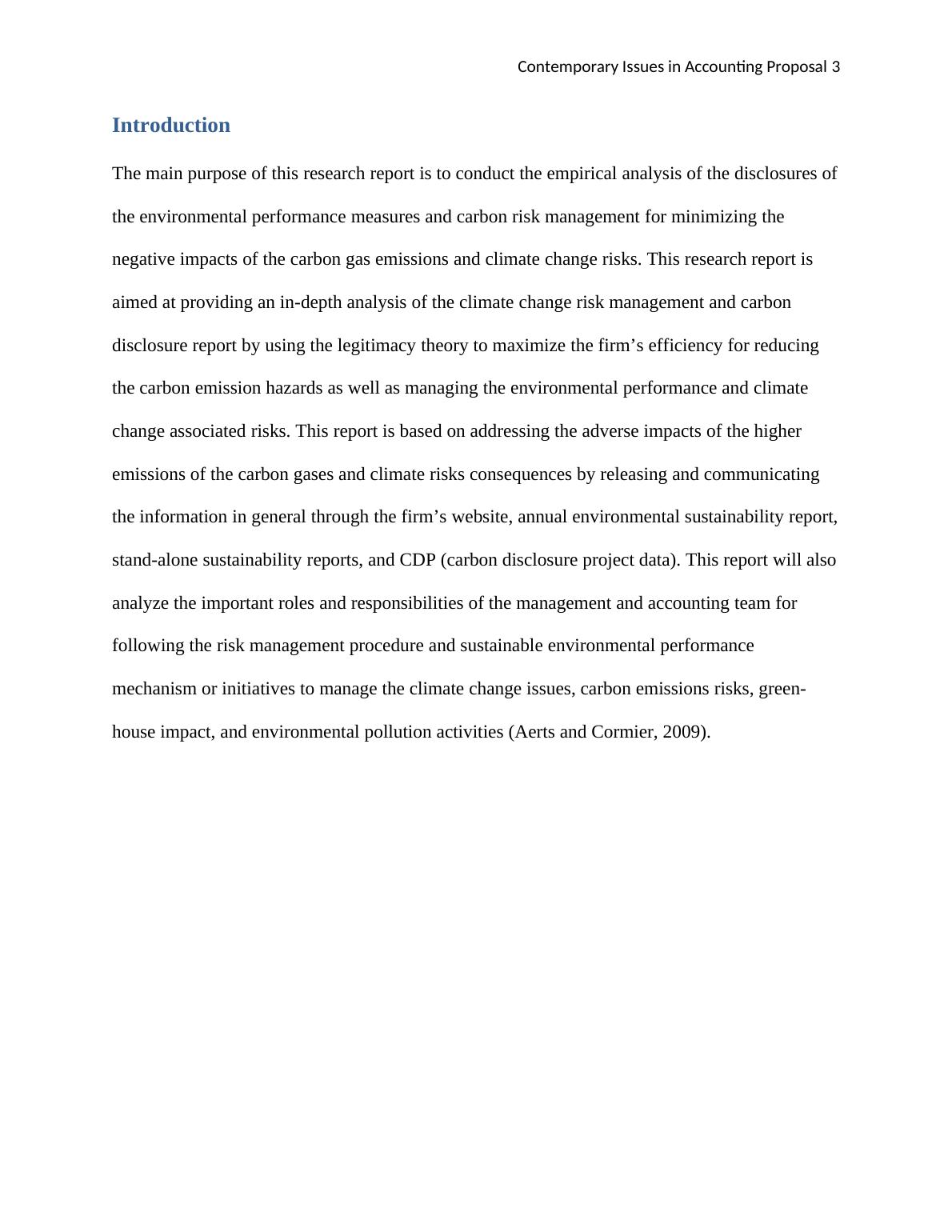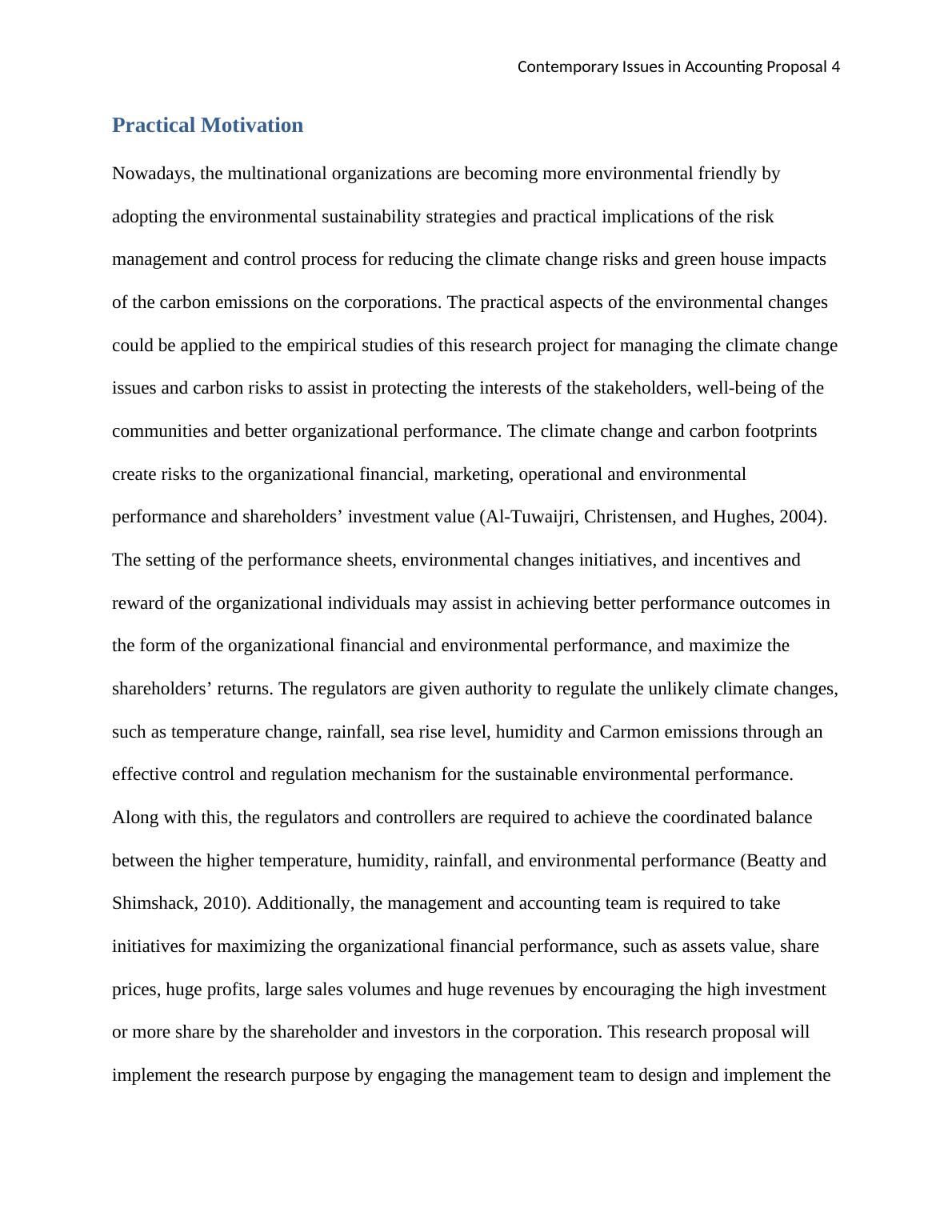Contemporary Issues in Accounting: Carbon Disclosure Project Contents
15 Pages3649 Words483 Views
Added on 2019-11-26
About This Document
This research will also analyze the important roles and responsibilities of the management and accounting team for following the risk management procedure and sustainable environmental performance mechanism or initiatives to manage the climate change issues, carbon emissions risks, green-house impact, and environmental pollution activities (Aerts and Cormier, 2009).
Contemporary Issues in Accounting: Carbon Disclosure Project Contents
Added on 2019-11-26
ShareRelated Documents
End of preview
Want to access all the pages? Upload your documents or become a member.
Contemporary Issues in Accounting (Doc)
|19
|2372
|40
Carbon Emissions and Climate Change Impact on Businesses
|13
|2707
|254
Management Accounting Issues and Stakeholder Theory
|11
|1730
|199
Contemporary Accounting and Management Accounting Issues: Agency Theory
|13
|2480
|369
ACC620 - Contemporary Issues in Accounting
|15
|2405
|16
Contemporary Issues in Accounting: Carbon Emission of Australian Manufacturing Industries Based on Stakeholder Theory
|15
|3297
|149




